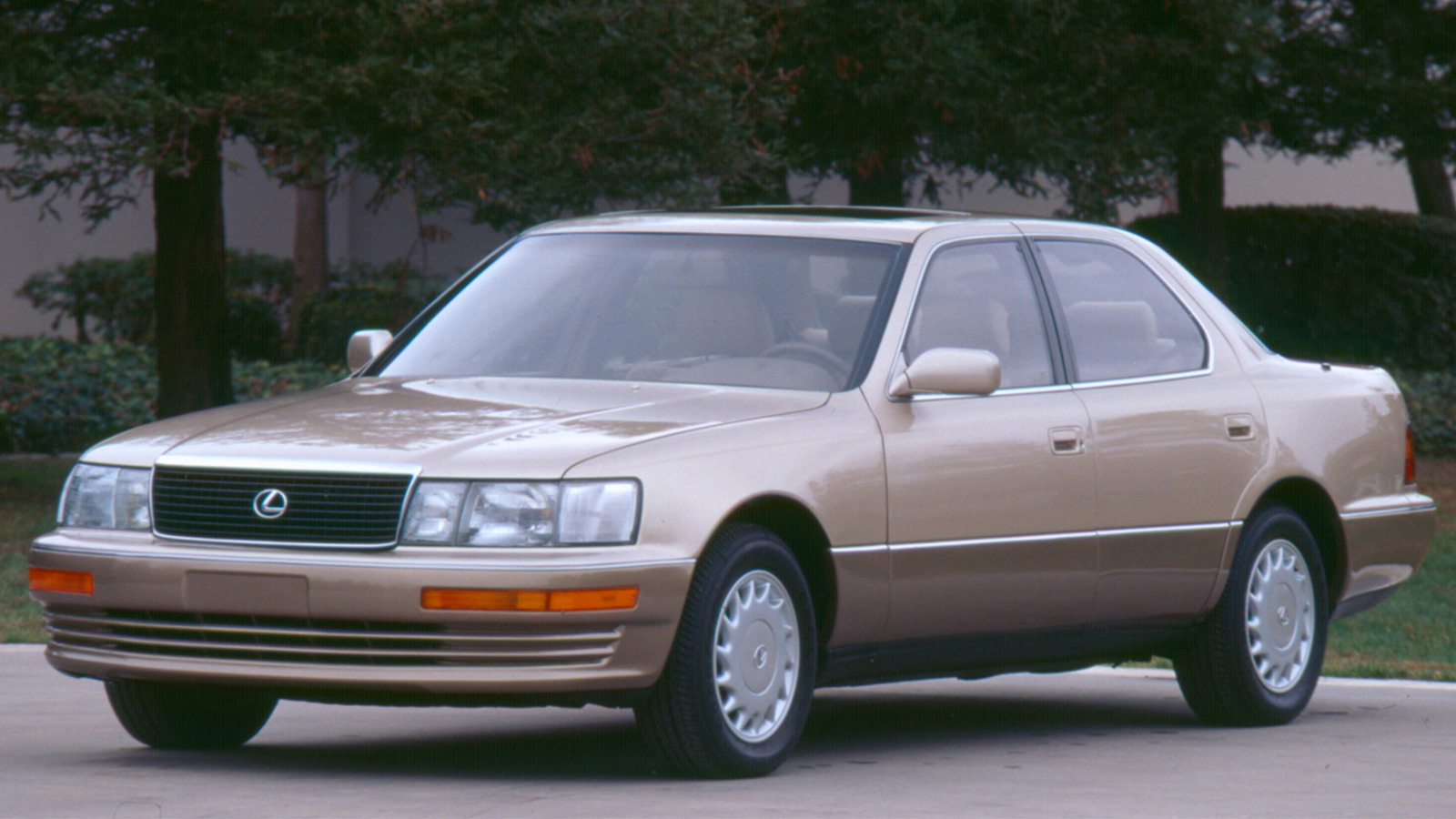When Toyota president Eiji Toyoda set his sights on building “a car that is better than the best in the world” in 1983, the automotive community thought that Japan’s largest automaker had lost their footing. The original 1990 Lexus LS 400 that debuted in 1989 (internally known as “Circle F” or “project F1”) took six years to develop from scratch. It required the brainpower of 60 designers, 2,300 technicians, 200 support workers, and 1,400 engineers split up into 24 teams.
Advertisement
The top-secret Circle F project set lofty engineering targets during development: The first-ever Lexus LS 400 should have a 155 mph (250 kph) top speed, a drag coefficient of no more than 0.29, return 22 mpg, and cruise at 62 mph with noise cabin levels not exceeding 58 decibels.
The LS 400 was to be faster, quieter, and more aerodynamic than its BMW, Mercedes-Benz, and Jaguar foes; an overly ambitious target that led Toyota’s director of product engineering, Akira Takahashi, to tell LS 400 chief engineer, Ichiro Suzuki, that “it could not be done,” and that “you’re out of your mind.”
The 1989-1994 Lexus LS 400 was obsessively engineered to last
Toyota and Lexus took no shortcuts in making the first-gen LS 400 one of the most reliable production vehicles ever. The LS 400’s 1UZ-FE 4.0-liter V8 engine has an aluminum block, cast iron cylinders, aluminum cam followers, and a five-bearing crankshaft with eight counterweights for maximum strength and a smoother operation. Meanwhile, the engine suspends on hydraulic pneumatic mounts to reduce vibrations.
Advertisement
Furthermore, Toyota/Lexus engineers tilted back the V8 engine oh-so-slightly for the two-piece propeller shaft — each exhaustively tuned for primary and secondary imbalances — to lie in a straight line from the bespoke gearbox to the rear axle. This is what enabled the drivetrain to operate wear-free and with virtually zero vibrations.
Meanwhile, Lexus claims all components were “destruction tested” and were “subjected to an accelerated aging process” to satisfy the automaker’s “special durability program.” The body and chassis are stiffer, and the Lexus LS400 was the first production car to feature laser-welding construction, which enabled Toyota to weld together five sheets of different gauge steel and sound-insulating panels between the double-skinned front and rear bulkheads.
Advertisement
Is it worth getting a first-gen Lexus LS400?
Consumer Reports called the Lexus LS 400 “one of the world’s finest luxury sedans,” no small praise at a time when BMW 735 and Mercedes-Benz S-Class models were ruling the luxury vehicle market. Consumers rated the LS 400 highly in all aspects of comfort, performance, reliability, and value, from Cars.com to Edmunds consumer reviews. Some reviewers even said the LS 400 “is the best and most reliable car I’ve owned,” and called it “the best sedan,” and “the best Lexus” ever made.
Advertisement
The Lexus LS 400 shook the automotive industry and gave German automakers a reality check. By 1990, just a year after its initial release, U.S. sales of the Lexus LS 400 surpassed BMW, Mercedes-Benz, and Jaguar. Every automaker was in disarray on how Lexus managed to surpass its targets with the LS 400’s sub-$40,000 base price.
It’s never been a better time to test the waters on a used Lexus LS 400 as well. With a V8 engine regarded as one of the most reliable in the world, finding a low-mileage unit will be rarer than a needle in a haystack. However, it’ll be refreshing to drive a car that continues to receive high praise for its engineering feats, especially now that studies have shown that modern vehicles have become less dependable.
Advertisement







